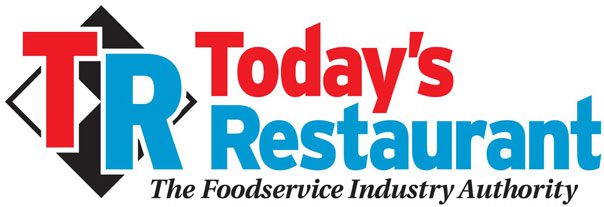
Why Leading NGOs Launched a Coalition to Advocate for Food Waste Policy
Washington, DC – NRDC (Natural Resources Defense Council), World Wildlife Fund (WWF), the Harvard Law School Food Law and Policy Clinic (FLPC), and ReFED have partnered to launch the Zero Food Waste Coalition, a national effort focused on informing and influencing policy at the local, state, and federal levels and sharing policy updates and opportunities for engagement with partners and stakeholders around the country. The coalition will bring consumers, businesses and government together to advocate for ambitious food waste policy solutions that contribute to the U.S. goal of halving food waste by 2030, reduce methane emissions from landfills, improve food access and nutrition security, and build more sustainable food systems.
“Changing behavior from food waste to food recovery is achievable,” said Regina Anderson, Executive Director of the Food Recovery Network. “We can reduce would-be food waste by half by 2030 if we all work together. The Zero Food Waste Coalition provides the resources we all need at any level to begin doing the right thing with our surplus food and Food Recovery Network is proud to provide step-by-step support. In time, we will be shocked that we ever threw food away at all!”
“It’s disgraceful that as millions of Americans—many of which are children—go hungry, perfectly good food is ending up in landfills. This waste is not only counterproductive to our fight against hunger, but it is also harming the environment and costing our economy hundreds of billions of dollars each year. In Congress, I have taken on this growing crisis, introducing bills to reduce food waste and correct arbitrary and confusing policies in our food system,” said Congresswoman Chellie Pingree (D-Maine), co-founder of the bipartisan Congressional Food Recovery Caucus. “The scale of the food waste crisis demands action on all fronts. So as my colleagues in Congress and I work to enact federal legislation, it’s important to have organizations on the ground engaging with and educating communities across the country to reduce waste. With the launch of the Zero Food Waste Coalition, I am confident that together, we can achieve our collective goals: reduce food waste, end hunger, and protect our planet.”
The U.S. produces and imports an abundance of food each year, but approximately 38% of it goes unsold or uneaten. The Zero Food Waste Coalition works to deliver on the economic, environmental, social, and public health benefits of reducing food waste. Food waste solutions can reduce the amount of greenhouse gas emissions produced throughout the lifecycle of food, conserve natural resources such as water and land which are used in the production of food, increase access to quality food, and create jobs and economic opportunity by using food as the resource that it is.
“To stop massive food waste—40 percent of America’s production—we need better labeling and more donations, as this coalition will fight to achieve,” said Senator Richard Blumenthal (D-Connecticut). “We’ll be fighting together for measures like my Food Date Labeling Act, which will help counter food insecurity and hunger as well as environmental harms.”
One of the coalition’s priorities is to mitigate food waste via the 2023 Farm Bill, a multi-year package of legislation that impacts agriculture and food issues across the U.S. Each year, farmers, food manufacturers, households, and businesses spend $444 billion to grow, process, transport, and dispose of food that is never eaten. Today, the Zero Food Waste Coalition released its top priorities for the Farm Bill, including provisions that expand federal administrative research and funding, increase grants and loans for infrastructure that eliminates food waste from landfills and for proven state and local policies that prevent wasted food, and standardize and clarify food date labels.
These priorities are included in the coalition’s April 2022 report on Opportunities to Reduce Food Waste in the 2023 Farm Bill, which provides 22 recommendations to prevent food waste, rescue surplus food, recycle food scraps, and coordinate food waste policy through the 2023 Farm Bill, based on feedback and input from more than two dozen organizations, government officials, and businesses.
“So much of the fresh produce grown on America’s farms never makes it to market, often due to small blemishes that don’t diminish its nutritional content one bit,” said Reverend Eugene Cho, President/CEO of Bread for the World. “That’s why Bread for the World endorses the Zero Food Waste Coalition’s call for the 2023 farm bill to support food recovery organizations that work with farmers to collect that produce to address hunger and improve access to healthy foods in underserved communities.”
“The creation of the Zero Food Waste Coalition is an exciting step towards achieving zero food waste in the United States,” said Ben Crook, Vice President/GM, Hellmann’s Dressings & Condiments (NA) at Unilever. “When like-minded people, companies and governments come together to introduce programs such as these, we will ultimately be able to help change people’s behavior and have a positive impact on food waste reduction, so that we can reach our ambitious net zero goals and protect our planet for future generations.”
The founding organizations of the coalition began working together in 2020 to engage with and inform policymakers on opportunities to prevent and reduce food waste. Together, they developed and launched the U.S. Food Loss and Waste Action Plan, endorsed by over 60 companies, NGOs, and local and state governments, which recommends overarching actions the federal government can take to reduce food waste. Subsequently, coalition founders hosted a listening session in June 2022 to gather stakeholder input on priorities related to food waste, food donation, and food recovery for the 2022 White House Conference and Strategy on Hunger, Nutrition and Health.
The coalition is committed to broadening engagement on its efforts and working together with policymakers, national and local advocates, food producers, retailers, and consumers to develop and implement strategies to reduce food waste at all stages of the food supply chain.
For more details about the coalition and information on how to be a part of the effort, visit the Zero Food Waste Coalition website.
Additional Resources:
- Top Priorities for the 2023 Farm Bill (April ‘23)
- Opportunities to Reduce Food Waste in the 2023 Farm Bill (April ‘22)
- Webinar Recording: Opportunities to Reduce Food Waste in the 2023 Farm Bill (June ‘22)
- U.S. Food Loss and Waste Action Plan (April ‘21)
- Wasted: How America is Losing Up to 40 Percent of its Food From Farm to Fork to Landfill (August ‘17)
###
The Zero Food Waste Coalition aims to inform and influence policy at the local, state, and federal levels, and share policy updates and opportunities with partners and stakeholders around the country to bring consumers, businesses, and government together to make food loss and waste history. The Coalition was launched by NRDC, WWF, ReFED, and FLPC in April 2023, formalizing a partnership that began in January 2020.
The Harvard Law School Food Law and Policy Clinic (FLPC) serves partner organizations and communities by providing guidance on cutting-edge food system issues, while engaging law students in the practice of food law and policy. FLPC’s work focuses on increasing access to healthy foods, supporting sustainable production and regional food systems, promoting community-led food system change, and reducing waste of healthy, wholesome food. FLPC is committed to advancing a cross-sector, multi-disciplinary and inclusive approach to its work, building partnerships with academic institutions, government agencies, private sector actors, and civil society with expertise in public health, the environment, and the economy. For more information, visit chlpi.org/flpc and follow us on twitter at @HarvardFLPC.
NRDC (Natural Resources Defense Council) is an international nonprofit environmental organization with more than 3 million members and online activists. Since 1970, our lawyers, scientists, and other environmental specialists have worked to protect the world’s natural resources, public health, and the environment. NRDC has offices in New York City, Washington, D.C., Los Angeles, San Francisco, Chicago, Bozeman, and Beijing. Visit us at www.nrdc.org and follow us on Twitter @NRDC.
ReFED is a national nonprofit working to end food loss and waste across the food system by advancing data-driven solutions. We leverage data and insights to highlight supply chain inefficiencies and economic opportunities; mobilize and connect supporters to take targeted action; and catalyze capital to spur innovation and scale high-impact initiatives. Our goal is a sustainable, resilient, and inclusive food system that optimizes environmental resources, minimizes climate impacts, and makes the best use of the food we grow. To learn more about solutions to reduce food waste, please visit www.refed.org.
WWF is one of the world’s leading conservation organizations, working in nearly 100 countries for over half a century to help people and nature thrive. With the support of more than 5 million members worldwide, WWF is dedicated to delivering science-based solutions to preserve the diversity and abundance of life on Earth, halt the degradation of the environment and combat the climate crisis. Visit http://www.worldwildlife.org to learn more and keep up with the latest conservation news by following @WWFNews on Twitter and signing up for theirour newsletter and news alerts here.
To read more great industry articles visit www.trnusa.com





Recent Comments